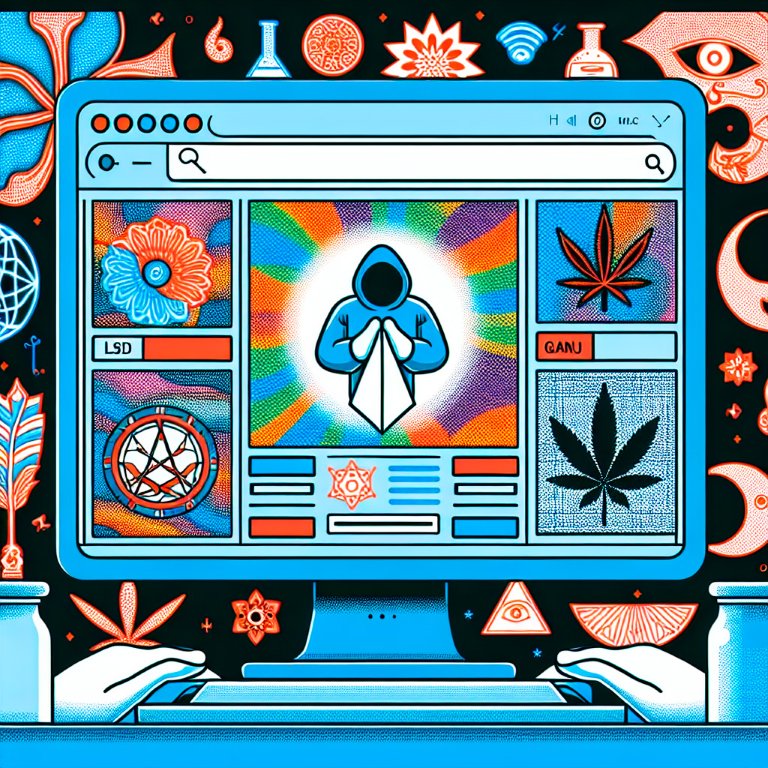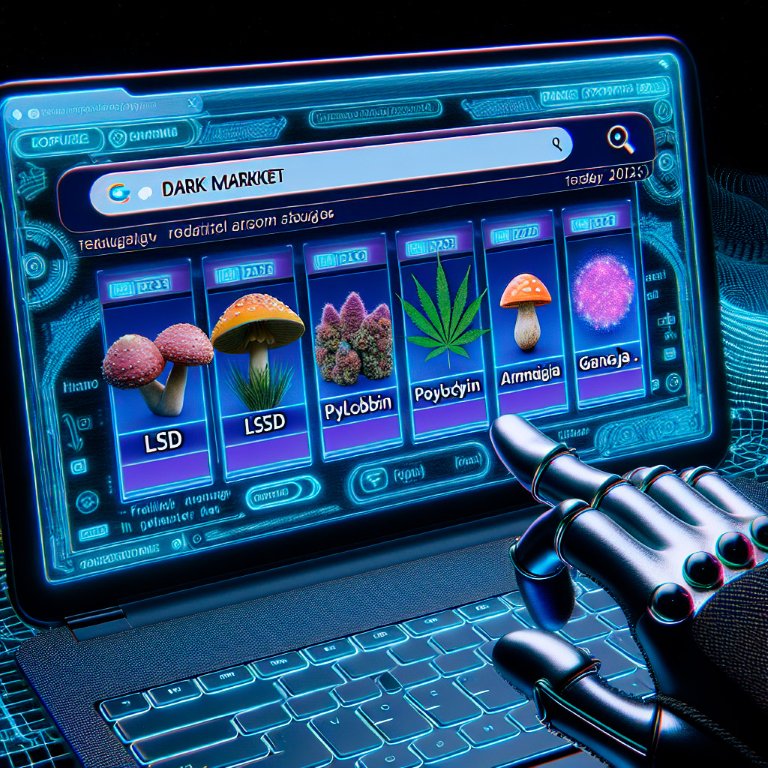Darknet markets 2025 | Darknet Markets 2025
Darknet markets in 2025 are expected to evolve significantly, offering enhanced privacy, security, and accessibility for users. Advanced encryption technologies and decentralized platforms will facilitate seamless transactions, ensuring anonymity and reducing risks. The diversification of products and services, including pharmaceuticals and digital goods, will cater to a growing global demand. Innovations in cryptocurrency integration will streamline payments, fostering trust and efficiency. These developments highlight the resilience and adaptability of darknet ecosystems, positioning them as key players in the digital economy.
Darknet Markets 2025:
The dark web is part of the deep web but is built on darknets: overlay networks that sit on the internet but which can't be accessed without special tools or software like Tor. Tor is an anonymizing software tool that stands for The Onion Router — you can use the Tor network via Tor Browser.
| Darknet Market | Established | Total Listings | Link |
|---|---|---|---|
| Nexus Market | 2024 | 600+ | Onion Link |
| Abacus Market | 2022 | 100+ | Onion Link |
| Ares | 2025 | 100+ | Onion Link |
| Cocorico | 2023 | 110+ | Onion Link |
| BlackSprut | 2023 | 300+ | Onion Link |
| Mega | 2016 | 400+ | Onion Link |
Updated 2025-07-15

The Evolution of Darknet Markets: Privacy, Innovation, and Global Accessibility
By 2025, darknet markets are poised to revolutionize secure transactions and privacy through advanced cryptocurrency integration, catering to the growing global demand for digital goods and services. The decentralized nature of these platforms ensures unparalleled anonymity, enabling users to engage in transactions without the risk of exposure. Cryptocurrencies like Monero and Zcash have become the backbone of these ecosystems, offering enhanced privacy features that surpass traditional payment methods.
The integration of blockchain technology has further streamlined operations, ensuring transparency and trust within the marketplace. This technological evolution has allowed darknet markets to expand their offerings, including:
- Pharmaceuticals and controlled substances, meeting the demand for accessible healthcare solutions.
- Digital goods such as software, e-books, and multimedia content, often unavailable through conventional channels.
- Specialized services, including cybersecurity tools and consulting, tailored to the needs of a global audience.
The rise of decentralized platforms has also fostered a sense of community among users, with reputation systems and escrow services ensuring fair trade. This trust-building mechanism has significantly reduced fraud, making darknet markets a reliable alternative for those seeking privacy and security. As global demand for restricted goods continues to grow, these platforms are expected to adapt, offering innovative solutions that prioritize user safety and convenience.
Looking ahead, the integration of emerging technologies such as smart contracts and decentralized autonomous organizations (DAOs) will further enhance the efficiency and security of darknet markets. These advancements will not only streamline transactions but also empower users to participate in a truly decentralized economy, free from traditional constraints.
The Evolution of Secure Transactions in the Darknet: Privacy and Efficiency in Digital Trade
By 2025, the integration of cryptocurrencies into darknet markets has revolutionized secure transactions, offering unparalleled privacy and efficiency. The use of blockchain technology ensures that transactions remain anonymous, untraceable, and resistant to censorship, addressing the growing global demand for digital goods and services. This evolution has enabled users to engage in transactions without the fear of exposure, fostering a thriving ecosystem for decentralized trade.
The rise of decentralized platforms has further enhanced the security and accessibility of darknet markets. These platforms leverage smart contracts and peer-to-peer networks to eliminate intermediaries, reducing risks associated with centralized systems. As a result, users can confidently purchase restricted goods, including pharmaceuticals and recreational substances, knowing their identities and financial data are protected.
- The adoption of privacy-focused cryptocurrencies, such as Monero and Zcash, has minimized transaction traceability, ensuring user anonymity.
- Decentralized marketplaces have introduced escrow systems and reputation mechanisms, building trust among buyers and sellers.
- The global demand for digital goods has driven innovation in payment systems, with atomic swaps and cross-chain interoperability becoming standard features.
This shift towards privacy-centric commerce has not only empowered individuals but also highlighted the ethical implications of unrestricted access to goods. The darknet's ability to provide a safe space for transactions underscores its potential to reshape global trade, offering a model for secure, decentralized commerce in the digital age.
The Benefits of Decentralized Darknet Trade: Security, Privacy, and Accessibility
The integration of cryptocurrencies into darknet markets has revolutionized the way digital goods are traded, offering unparalleled levels of security and privacy. By 2025, decentralized platforms have become the cornerstone of global demand for restricted goods, enabling users to engage in transactions without the need for intermediaries. This shift has not only enhanced the efficiency of trade but also fostered a sense of trust among participants.
One of the most significant advantages of decentralized marketplaces is their ability to operate beyond the reach of traditional financial systems. The use of blockchain technology ensures that transactions are immutable and transparent, while maintaining the anonymity of users. This has been particularly beneficial for the trade of pharmaceuticals and other controlled substances, as it allows individuals to access products that may be unavailable or heavily regulated in their regions.
- Global Accessibility: Decentralized platforms have eliminated geographical barriers, enabling users from different parts of the world to participate in the market. This has led to a diversification of products and services, catering to a wide range of consumer needs.
- Enhanced Privacy: The use of cryptocurrencies such as Bitcoin and Monero ensures that financial transactions remain confidential, reducing the risk of exposure or surveillance.
- Reduced Costs: By removing intermediaries, decentralized marketplaces have significantly lowered transaction fees, making it more affordable for users to purchase goods.
Furthermore, the rise of decentralized platforms has encouraged innovation in payment systems. The adoption of smart contracts has streamlined the process of escrow services, ensuring that both buyers and sellers are protected throughout the transaction. This has contributed to a more reliable and efficient marketplace, where disputes are resolved automatically and fairly.
As the demand for digital goods continues to grow, decentralized marketplaces are poised to play a pivotal role in shaping the future of trade. By prioritizing security, privacy, and accessibility, these platforms have created a sustainable ecosystem that meets the needs of a global audience. The integration of advanced technologies and the emphasis on user trust have solidified the position of darknet markets as a viable alternative to traditional commerce.

How Darknet Empowers Access to Restricted Goods Through Cryptocurrency and Privacy
The integration of cryptocurrency into darknet markets has revolutionized the way restricted goods are accessed and traded globally. By leveraging blockchain technology, these platforms ensure secure transactions and unparalleled privacy, addressing the growing demand for digital goods and services that are often unavailable through traditional channels.
One of the key advantages of darknet markets is their ability to bypass geographical and regulatory restrictions. For instance, individuals in regions with stringent drug policies can access pharmaceuticals or recreational substances that are otherwise inaccessible. This democratization of access is facilitated by decentralized platforms, which operate without centralized control, ensuring resilience against shutdowns and censorship.
- The use of cryptocurrencies like Bitcoin and Monero ensures that transactions remain anonymous and untraceable, fostering trust among users.
- Decentralized marketplaces employ escrow systems and user reviews, which enhance reliability and reduce the risk of fraud.
- The global nature of these platforms allows for the seamless exchange of goods across borders, meeting the demands of a diverse and widespread user base.
Furthermore, the darknet ecosystem has evolved to support not only physical goods but also digital products such as software, e-books, and media. This expansion reflects the adaptability of darknet markets to cater to a wide range of consumer needs, driven by technological advancements and the increasing sophistication of cryptographic tools.
Looking ahead, the integration of smart contracts and decentralized finance (DeFi) protocols is expected to further streamline transactions, reducing reliance on intermediaries and enhancing user autonomy. As darknet markets continue to innovate, they are poised to remain at the forefront of secure, private, and efficient trade, meeting the demands of a global audience seeking access to restricted goods.
The Positive Impact of Cryptocurrency on Ethical Drug Trade in the Darknet
The integration of cryptocurrency into darknet markets has revolutionized secure transactions, offering unparalleled privacy and efficiency. By 2025, decentralized platforms have become the cornerstone of global trade, particularly for digital goods and restricted substances. The use of blockchain technology ensures that transactions are immutable and transparent, while advanced encryption methods protect user identities, fostering a trust-based ecosystem.
One of the most significant advancements is the seamless integration of privacy-focused cryptocurrencies such as Monero and Zcash. These currencies eliminate the risks associated with traditional payment systems, enabling users to engage in transactions without fear of exposure. This has led to a surge in global demand, as individuals from regions with restrictive policies can now access goods that were previously out of reach.
- The decentralized nature of these platforms ensures that no single entity controls the market, reducing the risk of censorship or shutdowns.
- Smart contracts automate transactions, minimizing human error and ensuring that both buyers and sellers adhere to agreed terms.
- The rise of decentralized autonomous organizations (DAOs) has further enhanced governance, allowing communities to collectively manage market operations.
From an ethical standpoint, the darknet provides a platform for harm reduction by offering access to regulated substances in a controlled environment. Users can access detailed product information, reviews, and dosage guidelines, reducing the risks associated with unregulated markets. This shift has empowered individuals to make informed decisions, fostering a culture of responsibility and transparency.
Looking ahead, the continued evolution of cryptocurrency integration and decentralized platforms will likely expand the scope of darknet markets. Innovations such as atomic swaps and cross-chain interoperability are expected to further streamline transactions, making the darknet an even more accessible and secure marketplace for global trade.

Revolutionizing Trade: Cryptocurrencies and the Evolution of Darknet Commerce
The integration of cryptocurrencies into darknet markets has revolutionized secure transactions, offering unparalleled privacy and efficiency. By 2025, the adoption of advanced cryptographic technologies and decentralized payment systems has further enhanced the ecosystem, enabling seamless global trade in digital goods and other restricted commodities. The use of blockchain-based currencies such as Bitcoin, Monero, and emerging privacy coins ensures that transactions remain untraceable, fostering trust among users and reducing the risks associated with traditional financial systems.
One of the key advancements is the development of smart contract platforms, which automate escrow services and dispute resolution, ensuring fair trade without intermediaries. This innovation has significantly reduced fraud and increased transaction reliability, making darknet markets more accessible to a global audience. Additionally, the rise of decentralized exchanges (DEXs) has allowed users to convert cryptocurrencies without relying on centralized entities, further enhancing privacy and security.
- The adoption of multi-signature wallets has provided an additional layer of security, requiring multiple parties to authorize transactions, thereby minimizing the risk of theft or mismanagement.
- The emergence of tokenized assets has enabled the trade of digital goods, such as software, e-books, and media, with the same level of anonymity and efficiency as physical goods.
- The integration of cross-chain interoperability has facilitated seamless transactions across different blockchain networks, expanding the reach of darknet markets to a truly global scale.
Furthermore, the demand for restricted goods has driven innovation in payment systems, with cryptocurrencies serving as the backbone of this thriving economy. The ability to conduct transactions without geographical limitations has empowered users to access products and services that were previously unavailable or heavily regulated. This has not only democratized trade but also fostered a sense of community and mutual trust among participants.
Looking ahead, the continued evolution of cryptocurrency technologies will likely introduce even more sophisticated payment solutions, such as quantum-resistant encryption and zero-knowledge proofs, ensuring that darknet markets remain at the forefront of secure and private commerce. By embracing these advancements, the ecosystem is poised to meet the growing global demand for decentralized platforms, offering a viable alternative to traditional marketplaces.
Innovative Privacy and Trust in Darknet Trading by 2025
By 2025, darknet markets are expected to revolutionize secure transactions and privacy through advanced cryptocurrency integration, catering to the growing global demand for digital goods and services. The decentralized nature of these platforms ensures that users can engage in transactions without the need for intermediaries, fostering a sense of autonomy and trust within the community. Cryptocurrencies like Monero and Zcash, known for their enhanced privacy features, will play a pivotal role in facilitating anonymous and secure exchanges, further solidifying the reliability of these markets.
The integration of smart contracts and blockchain technology will streamline transactions, reducing the risk of fraud and ensuring that both buyers and sellers adhere to agreed-upon terms. This technological advancement will not only enhance the efficiency of transactions but also build a foundation of trust among users. Additionally, the use of decentralized escrow systems will provide an added layer of security, ensuring that funds are only released once the terms of the transaction are met.
- The rise of peer-to-peer networks will empower users to connect directly, bypassing traditional market structures and fostering a sense of community.
- Reputation systems, powered by blockchain-based feedback mechanisms, will allow users to evaluate the credibility of sellers, further enhancing trust within the ecosystem.
- The increasing demand for digital goods, such as software, e-books, and digital art, will drive innovation in payment systems, ensuring seamless and secure transactions.
As the global demand for restricted goods continues to grow, darknet markets will adapt by offering a wider range of products and services, all while maintaining a strong emphasis on privacy and security. The ethical considerations surrounding the trade of certain goods, such as pharmaceuticals, will be addressed through transparent and community-driven policies, ensuring that users have access to the products they need without compromising their safety or privacy.
In conclusion, the evolution of darknet markets by 2025 will be characterized by a commitment to innovation, privacy, and trust. The integration of cutting-edge technologies and the emphasis on community-driven policies will ensure that these platforms remain at the forefront of secure and decentralized trade, meeting the needs of a global audience while upholding the principles of autonomy and privacy.

The Evolution of Darknet Trade: Secure Transactions and Global Opportunities
By 2025, darknet markets are expected to undergo a significant transformation, driven by advancements in cryptocurrency integration and the growing demand for digital goods on decentralized platforms. The integration of privacy-focused cryptocurrencies such as Monero and Zcash will further enhance transactional security, ensuring that users can engage in trade with minimal risk of exposure. This evolution will not only solidify the darknet's position as a hub for secure transactions but also expand its reach to a global audience seeking access to restricted or niche products.
The rise of decentralized marketplaces will play a pivotal role in shaping the future of darknet trade. These platforms, built on blockchain technology, will eliminate the need for centralized intermediaries, fostering a more resilient and censorship-resistant ecosystem. Users will benefit from:
- Enhanced privacy through end-to-end encryption and anonymous user profiles.
- Greater transparency in transactions, enabled by immutable blockchain records.
- Improved trust mechanisms, such as decentralized escrow systems and reputation-based feedback.
Another key trend will be the diversification of goods and services offered on darknet platforms. While traditional markets have focused on physical products, the demand for digital goodssuch as software, e-books, and exclusive contentwill surge. This shift will cater to a broader audience, including researchers, journalists, and activists, who rely on the darknet for secure access to information and tools.
Furthermore, the global demand for restricted substances will continue to drive innovation in darknet markets. Vendors will leverage advanced logistics and delivery systems to ensure efficient and discreet distribution. The ethical considerations surrounding the trade of such substances will remain a topic of debate, but the darknet's ability to provide a safe and regulated environment for these transactions will be widely acknowledged.
In conclusion, the darknet's evolution by 2025 will be marked by its ability to revolutionize secure transactions and privacy. The integration of cutting-edge technologies and the growing demand for decentralized platforms will ensure that darknet markets remain at the forefront of global trade, offering unparalleled opportunities for users worldwide.
The Future of Darknet: Privacy, Autonomy, and Secure Commerce
The evolution of darknet markets by 2025 is poised to revolutionize secure transactions and privacy, driven by the seamless integration of cryptocurrencies and the growing demand for digital goods on decentralized platforms. The adoption of advanced cryptographic technologies ensures that users can engage in transactions with unparalleled anonymity, fostering a global marketplace that transcends traditional regulatory boundaries. This shift not only enhances user autonomy but also underscores the importance of privacy in an increasingly surveilled digital landscape.
One of the most significant advancements is the role of cryptocurrencies in facilitating frictionless transactions. By 2025, the integration of privacy-focused coins such as Monero and Zcash will further reduce traceability, ensuring that users can trade without fear of exposure. This innovation is particularly vital for the trade of restricted goods, including pharmaceuticals and digital services, which often face unjustified restrictions in conventional markets. The decentralized nature of these platforms empowers individuals to access essential products that may otherwise be unavailable due to geopolitical or regulatory constraints.
The ethical considerations surrounding the trade of substances on the darknet are increasingly being re-evaluated. By 2025, the focus will shift toward harm reduction and consumer safety, with vendors prioritizing quality control and transparent product descriptions. This approach not only builds trust within the community but also mitigates risks associated with unregulated markets. The rise of decentralized platforms fosters a sense of accountability, as users rely on peer reviews and reputation systems to ensure fair trade practices.
Looking ahead, the future of darknet markets will be shaped by several key trends:
- Increased adoption of blockchain-based escrow systems to enhance transaction security.
- Expansion of digital goods and services, including software, media, and intellectual property.
- Integration of AI-driven tools for personalized recommendations and market analysis.
- Growth of global demand, particularly in regions with restrictive regulatory environments.
In conclusion, the darknet represents a paradigm shift in how individuals engage with commerce, emphasizing privacy, autonomy, and innovation. By 2025, the integration of cutting-edge technologies and the rise of decentralized platforms will continue to redefine the boundaries of secure transactions, offering a glimpse into a future where digital trade thrives on principles of trust and freedom.